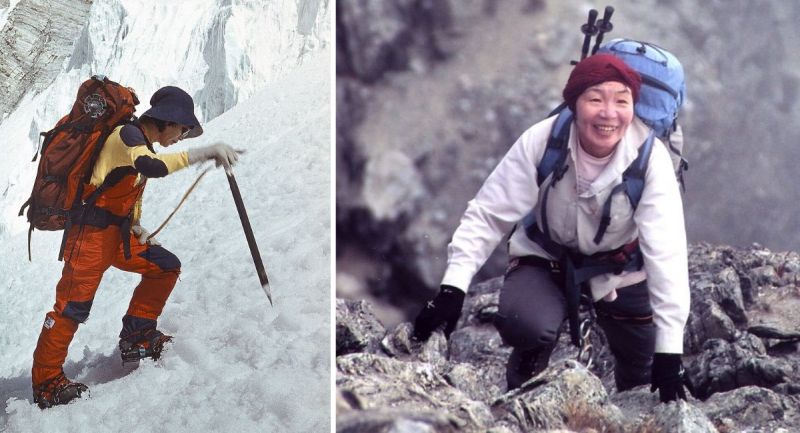Junko Tabei: The first woman to conquer Mt Everest

- Newsband
- 20 May, 2025
Long before hashtags, sponsorships, and livestreamed summits, there was Junko Tabei, a soft-spoken, steel-willed Japanese mountaineer who, in 1975, became the first woman to reach the top of Mount Everest. Her climb wasn’t just about conquering a mountain. It was about challenging an entire system that told her she didn’t belong there.
Born in Fukushima, Japan, in 1939, Tabei was the fifth of seven children and considered a frail child. But a school trip to a mountain at age ten awakened in her a passion that would endure a lifetime. Despite society’s expectations, and active discouragement from male-dominated climbing clubs, she pursued mountaineering with quiet determination. Many told her she should focus on marriage instead of mountains.
But Tabei had a different summit in mind. In 1969, she founded the Joshi-Tohan Club, Japan’s first all-women mountaineering group. Its motto, “Let’s go on an overseas expedition by ourselves,” was both a rallying cry and a rebellion.
Her historic Everest expedition in 1975 was anything but easy. Tabei and her team were struck by an avalanche at 6,300 metres, burying them in their tents. Undeterred, she dug herself out, pressed on, and 12 days later, stood on top of the world, battered, freezing, and triumphant.
Her feat made global headlines, yet the attention quickly faded. Tabei, modest and private, never sought fame. “I never intended to be the first woman on Everest,” she once said. “I did it because I wanted to.”
What many forget is that Everest was just the beginning. In 1992, she became the first woman to complete the Seven Summits, the highest peak on each continent. She climbed more than 70 mountains across 60 countries, often funding trips herself and advocating for sustainable climbing. Even after being diagnosed with cancer in 2012, she continued trekking, completing her final climb just months before her death in 2016.
In an age that celebrates trailblazers, Tabei’s legacy remains lesser known, a quiet casualty of history’s selective memory. Unlike today’s highly commercialised Everest ascents, Tabei’s climbs were powered not by fame or fortune, but by resolve and passion. She carved her place in a world that didn’t think she had one, then kept going.
It is symbolic, perhaps, that her name is whispered more than shouted. But her footprints are still there, in snow, in stone, and in every woman who dares to defy expectations and climb her own mountain.





